Base Weight Backpacking: All You Need to Know and Do [2025]
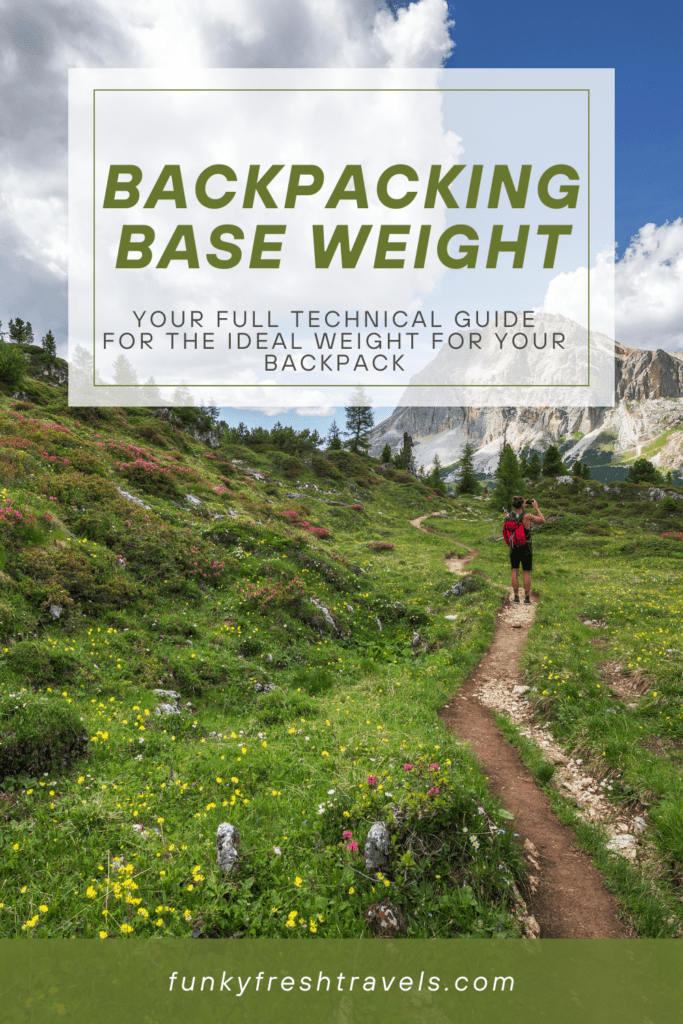

Learn about Backpacking Base Weight. Discover expert tips and tricks for reducing the weight of your backpack to make your trip more enjoyable and lighter.
Backpacking can be described as outdoor travel that involves carrying all necessary gear and supplies in a backpack while hiking through remote areas or wilderness. Backpacking offers a refreshing alternative to traditional camping or hiking. It is possible to explore rugged terrain, remote landscapes, and pristine natural environments without having to stay in designated campgrounds or follow marked trails.
A backpacker typically relies on lightweight, portable gear to sustain themselves throughout a multi-day or multi-week journey, such as tents, sleeping bags, and cooking equipment.
A backpacking trip provides the opportunity for individuals to discover nature, challenge themselves physically and mentally, and experience the sense of adventure and self-sufficiency that comes from traveling through diverse landscapes and immersing themselves in the beauty and solitude of nature.
No matter, where you are travelling to, even for a short time, don’t forget your travel insurance
Need to learn basic stretching for your long travel, international flight backpacking journey or camping trip ? Or for your Hike ? Check my full guide of the best travel stretches HERE
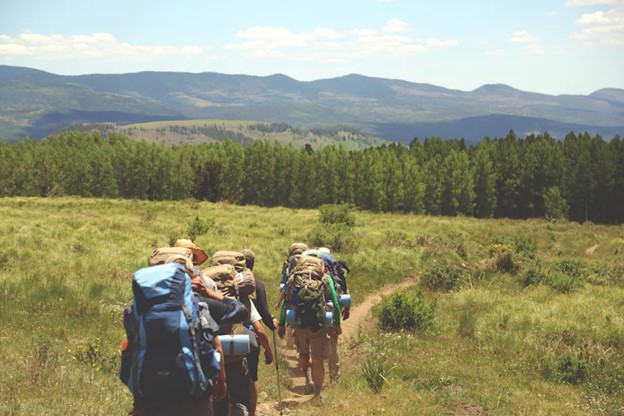
PLAN OF THE ARTICLE :
– Definition of Base Weight Backpacking
– Importance of Base Weight in Backpacking
– Tips for Reducing Base Weight
– Benefits of Reducing Base Weight
– Good Base Weight For Backpacking
– Backpacking base weight list and packing method
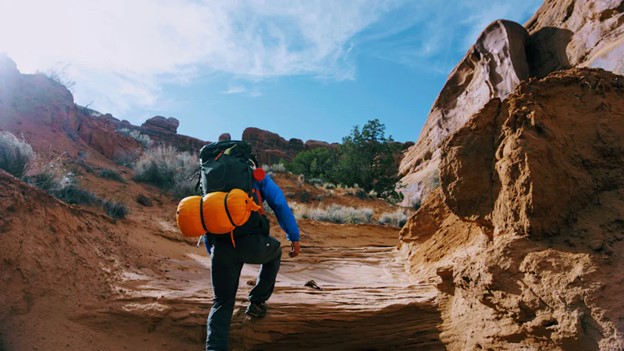
Definition Of Base Weight Backpacking
A backpacker base weight consists of the weight of all essential gear and equipment in addition to food, water, and fuel that is carried by him or her.
A backpack consists of a variety of items such as the backpack itself, a shelter (tent or hammock), a sleeping bag, clothing, cooking equipment, and navigational tools. A backpacker’s ability to understand and manage base weight is crucial because it directly affects their comfort, mobility, and overall enjoyment on the trail.
Backpacking aims to minimize base weight through careful gear selection, smart packing strategies, and the reduction of non-essential items. This can assist backpackers in reducing physical strain during long hikes, as well as increasing their endurance during these hikes. Backpackers who maintain an optimal base weight are more likely to traverse challenging terrain efficiently and be able to enjoy the serenity of the wilderness with greater ease.
Check our guide on how to pack your backpack for travel HERE
Travelling long term and log distance ? Please find our ultimate list HERE
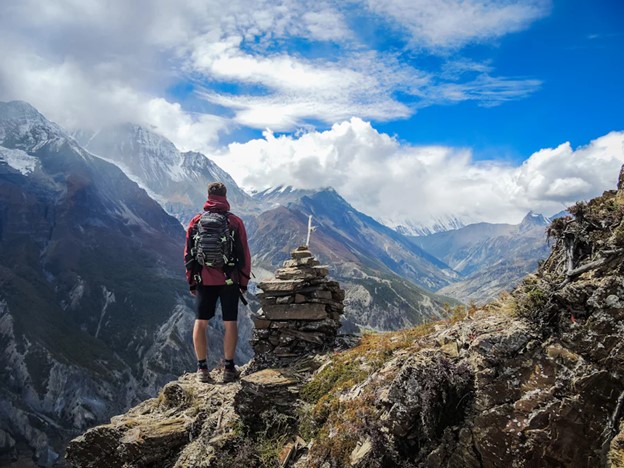
Importance of Base Weight in Backpacking
The weight of every ounce matters when backpacking. A concept known as Base Weight is useful in this situation.
A backpack’s Base Weight is the total weight of the backpack and its contents, excluding consumables such as food, water, and fuel. The Base Weight of your backpack can make a significant difference in your backpacking experience, even if it may appear to be a purely numerical measurement. The following are some of the reasons why base Weight is so important:
1. Efficiency
The lighter your Base Weight, the less strain you will experience on your body when trekking through rugged terrain. Your pack will not weigh you down and you will be able to cover greater distances with less effort.
2. Comfort
A heavy backpack can cause fatigue and discomfort, particularly on long hikes. It is recommended that you keep your Base Weight as low as possible to improve your comfort on the trail and reduce the risk of developing aches and pains.
3. Versatility
The lighter Base Weight gives you greater flexibility to traverse a variety of terrains and weather conditions. The gear you are carrying can be adjusted accordingly without being burdened by unnecessary items.
4. Speed
The ability to lighten your load can also aid you in maintaining a faster pace while hiking. A lower Base Weight can assist you in moving more efficiently, regardless of whether you are competing against the clock or simply want to reach your destination faster.
5. Safety
The risk of accidents and injuries when backpacking is reduced by carrying less weight. Your balance and agility will be improved, making it easier for you to navigate challenging terrain and unexpected obstacles.
6. Longevity
Lighter Base Weights prolong the lifetime of your equipment and make backpacking adventures more enjoyable for many years to come by minimizing the stress placed upon your body and equipment.
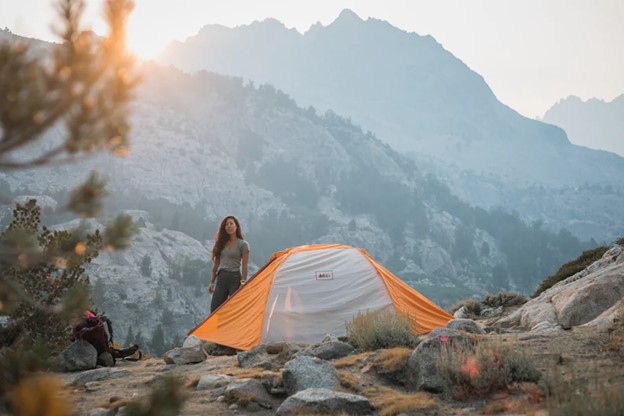
Need some camping and backpacking inspiration ? Check our best quotes about backpacking and adventure HERE
Tips for Reducing Base Weight
The following tips will assist you in reducing your base weight:
✔️ Choose Lightweight Gear: Choose lightweight gear designed specifically for backpacking with a focus on lightweight materials and minimalist design. You should look for ultralight versions of essential items such as tents, sleeping bags, and cookware to significantly reduce the weight of your pack without sacrificing function.
✔️ Strategies for Reducing Base Weight: A variety of strategies can be employed to reduce the amount of weight in your backpack. A few of these tips include investing in lightweight equipment, adopting a minimalist approach while packing, and reevaluating each item’s necessity.
✔️ Lightweight Gear Options: Backpackers seeking to trim their base weight without compromising on functionality will find numerous lightweight gear options on the market, from ultralight tents and sleeping bags to compact cooking stoves and minimalist clothing.
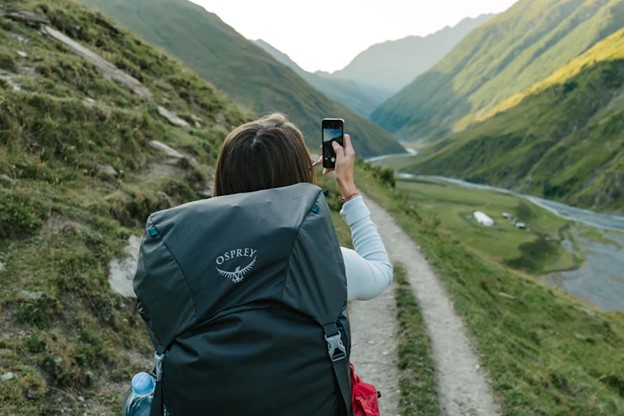
✔️ For ultralight backpackers looking to reduce base weight on their gear list and lower the total pack weight, focusing on the pack’s base weight is crucial. The sleep system, including ultralight gear such as a lightweight sleeping bag and pad, can significantly cut down on how much weight you’re carrying. Don’t overlook the weight of consumables such as food and liters of water – consider lighter alternatives like dehydrated meals and collapsible water bottles to reduce your load.
✔️ When planning for longer trips on trails like the Appalachian Trail or Pacific Crest Trail, choosing lighter backpacking gear and packing only essential items can help you achieve a lighter backpack and a more enjoyable backpacking adventure. Consider the weight of luxury items and excessive clothing – they can add unnecessary pounds to your pack.
✔️ Ultralight packs and modern materials can offer lighter options for your gear, and trekking poles can also help distribute weight and reduce strain on your body. Remember, the best thing you can do is to carefully evaluate each piece of gear on your packing list and consider if it’s truly necessary. Avoid duplicate items and excessive clothing, and opt for lighter gear whenever possible.
✔️ By focusing on reducing your pack’s base weight, you’ll have a lighter load, expend less energy, and experience more comfort on your outdoor adventure. Following general guidelines, such as using a backpacking base weight calculator and a step-by-step guide, can help you achieve a low base weight for your next backpacking trip. It’s a good idea to prioritize important items like a first-aid kit, water filter, and rain gear while leaving behind unnecessary heavy gear and extra clothes, especially in cold weather conditions. Traditional backpackers may carry heavy packs, but by embracing the concept of base weight and the ultralight backpacking mindset, you can enjoy a lighter backpack and a more enjoyable long-distance trek.
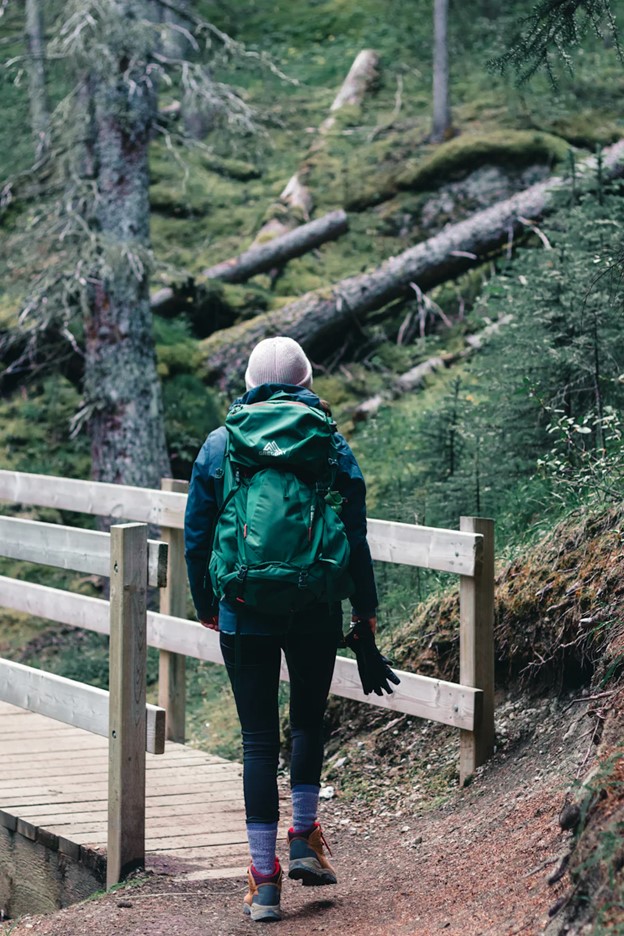
Benefits of Reducing Base Weight
A reduction in your Base Weight, that is, the total weight of your backpack and its contents, including consumables, provides many advantages that can enhance your backpacking experience considerably. The following are some key benefits of lightening your load:
1. Increased Endurance
The ability to carry less weight allows you to conserve energy and maintain endurance over long distances. The lighter the pack, the easier and more confident you will be in tackling challenging trails.
2. Improved Mobility
A lighter Base Weight increases your ability to maneuver on the trail and enhances agility. You will be able to navigate obstacles, traverse uneven terrain, and cross streams or boulders without feeling weighed down by excessive weight.
3. Enhanced Comfort
Weight reduction allows you to hike more comfortably by reducing the strain on your shoulders, back, and hips as a result of removing unnecessary weight from your pack. By reducing fatigue and discomfort, you will be able to fully enjoy the journey.
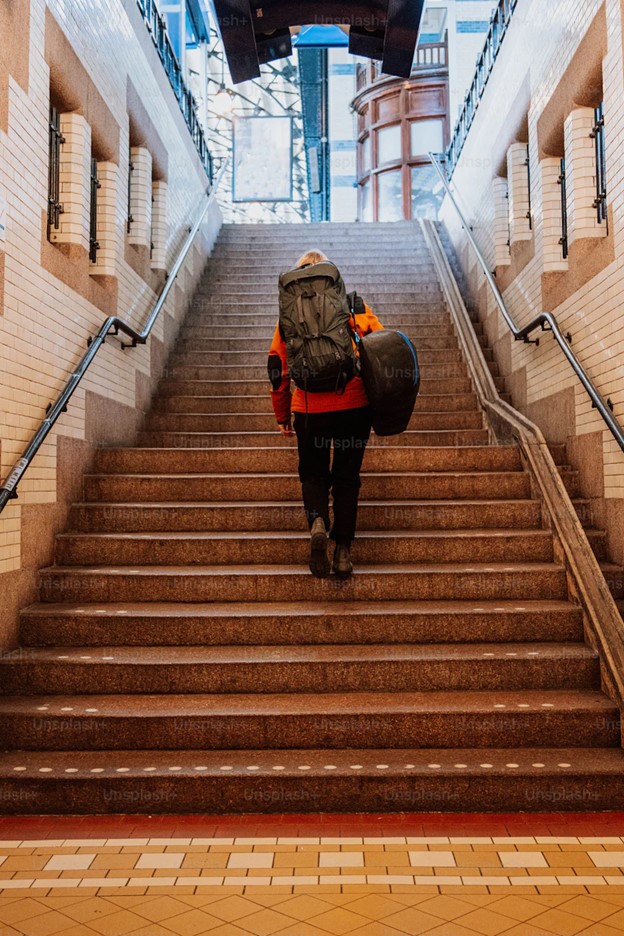
4. Quicker Recovery
Lighter loads reduce the risk of overexertion and muscle fatigue, resulting in quicker recovery after hiking. Your muscles will be less sore and stiff after your adventures, so you can participate in new adventures more quickly.
5. Increased Speed
A reduction in Base Weight will allow you to move more quickly along the trail. The lightness of your pack will enable you to reach your destination more rapidly, regardless of whether you are attempting to cover longer distances or simply prefer to move at a faster pace.
6. Greater Versatility
Your backpack will be lighter when excess weight is removed, giving you the ability to explore more trails and terrain types. A multi-day trek can be undertaken without fear of failure, steep ascents and descents can be handled with ease, and technical terrain can be navigated efficiently.
7. Enhanced Safety
A lighter pack reduces the risk of injury and accident while hiking. Your balance and stability will improve, reducing the possibility of falling, slipping, and tripping. A lighter pack also allows for more nimble maneuvering in the event of an emergency.
8. Easier Transportation
Transporting your gear to and from the trailhead is made easier with a lighter Base Weight. Your pack will feel lighter and easier to lift and carry, whether you are loading it into a vehicle or strapping it to your back for a trip.
9. Extended Gear Lifespan
Weight reduction is one of the most effective ways to ensure that your gear is durable and long-lasting. Your equipment’s integrity can be maintained and maximized for future excursions by reducing stress on seams, straps, and materials.
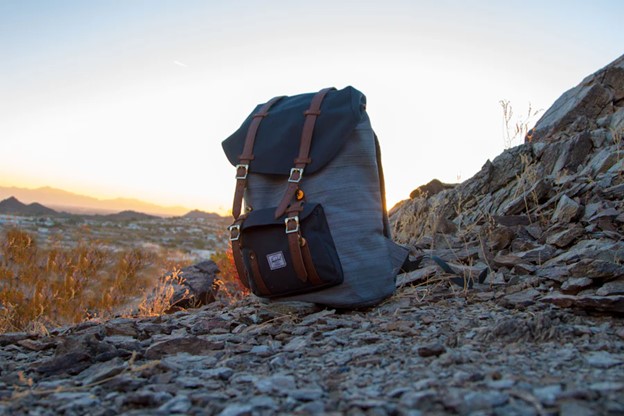
Good Base Weight For Backpacking
The ideal base weight for backpacking is typically between 10 and 20 percent of your body weight. The range of gear provided by this range allows you to carry essential gear while keeping your load manageable during long hikes and minimizing the strain on your body.
You can reduce your base weight on the trail by choosing lightweight and multi-purpose gear while maintaining comfort and safety. The level of adjustment may vary based on the terrain, weather conditions, and personal preferences.
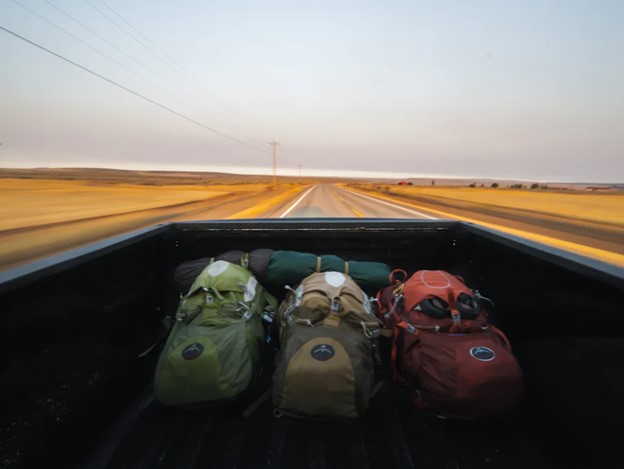
Backpacking base weight list and packing method
Backpacking Base Weight List of Items:
1. Gear list:
2. Sleep system
3. Ultralight gear
4. Water bottles
5. First aid kit
6. Rain gear
7. Trekking poles
8. Water filter
09. Pack size
10. Pounds of food
11. Liters of water
12. Backpack weight
13. Skin-out weight
14. Loaded backpack
16. Pack’s base weight
17. Total weight of your entire gear kit:
18. Additional weight
19. Extra clothes
20. Modern materials ( phone etc )
21. Important items
22. Weight of consumables
24. Luxury items
23. Lighter alternatives
24. Total pack weight
25. Hiking gear
26. Lighter gear
Wondering about the best ultralight backpacking knives ? Check our blog HERE
Want to bring some coffee ? We have a full list of the best instant coffee for backpacking and hiking
Looking to bring a hatchet for your camping ? Check our list of the best hatchet for camping HERE
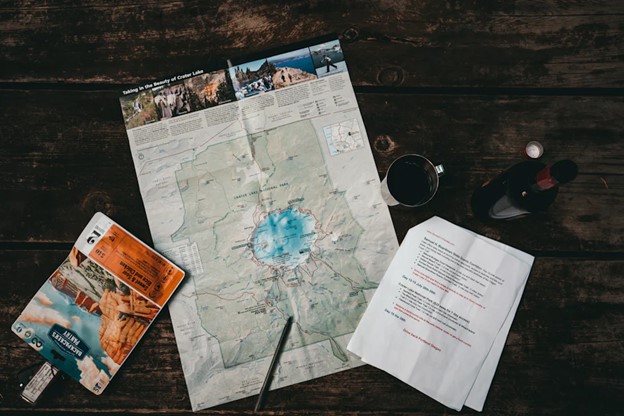
Packing Method:
1. Start by creating a detailed gear list of essential items for your specific trip.
2. Evaluate each piece of gear to determine if there are lighter alternatives available.
3. Consider the weight of your sleep system, including an ultralight sleeping bag and pad.
4. Pack only the necessary amount of consumables such as food and water to reduce pack weight.
5. Opt for ultralight gear like backpacks, tents, and clothing to minimize your base weight.
6. Use a backpacking base weight calculator to track the total weight of your gear kit.
7. Organize your gear efficiently in your backpack to distribute weight evenly and maximize space.
8. Prioritize important items like a first aid kit, water filter, and rain gear for safety.
9. Avoid carrying luxury items and excessive clothing that add unnecessary weight.
10. Adjust your packing list based on the specific trip requirements, such as cold weather or longer distances.
11. Embrace the concept of base weight to achieve a lighter load and conserve energy during your outdoor adventure.
12. Check for duplicate items and leave out anything that is not essential.
13. Follow general guidelines and a step-by-step guide to streamline your packing process.
14. Always consider your comfort levels and the strain on your body when packing for a backpacking trip.
15. Embrace the mindset of an ultralight hiker to focus on reducing pack weight and enjoying the journey with less burden.
Tired after your long day of hike ? Check my full guide about the best stretches to do for campers
Base Weight Hiking
Hiking base weight is the weight of your backpack, including all its contents, excluding consumables such as food, water, and fuel. This includes items such as a tent, sleeping bag, sleeping pad, clothing, and any other gear you may need on your hike. The goal of keeping your base weight low is to reduce strain on your body and increase comfort while on long hikes.
The standard recommendation for hikers is to maintain a base weight of approximately 10-20% of their body weight, although this may vary depending on a hiker’s preferences and the conditions of the hike. It is common to reduce the base weight of an expedition by minimizing unnecessary items and using lightweight equipment.
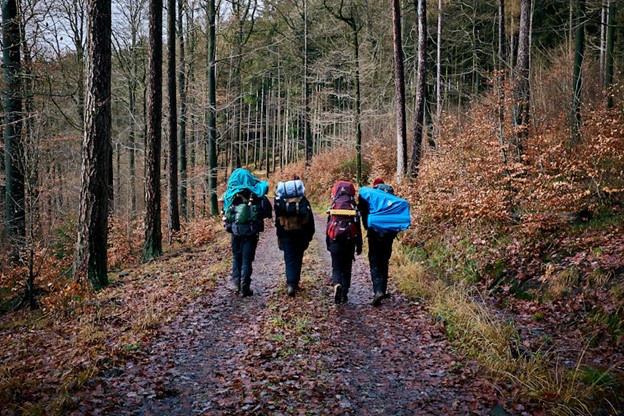
FAQs
Why is base weight important for backpackers?
The base weight of your pack is important as it has a direct impact on how heavy your pack will be on the trail. The lighter your base weight, the less strain you will feel on your body, the more mobile you can be, and the more comfortable your journey will be.
Can I go too light with my base weight?
Yes, going too light can compromise your safety or comfort. You should always place importance on essentials like shelter, warmth, and hydration instead of reducing weight. You should adjust your backpacking gear based on the weather conditions of your trip.
Is there an ideal base weight for backpacking?
Based on factors such as personal preferences, duration of the trip, weather conditions, and terrain, the ideal base weight will vary depending on each situation. The basic weight of an experienced backpacker should be between 10 and 20 pounds (4.5 to 9 kilograms) for a three-season hiking trip.
Does reducing base weight compromise comfort or safety?
The base weight of the vehicle can be reduced without compromising comfort or safety. You must strike a balance between carrying the necessary gear and minimizing your load. You should place priority on items that contribute to your safety and well-being on the trail.
What role does gear selection play in base weight management?
The choice of equipment is an important component of the process of managing base weight, as lightweight alternatives can help reduce overall pack weight without compromising functionality or comfort.
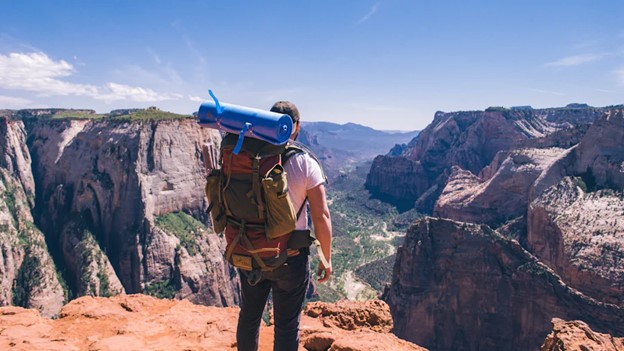
Conclusion
The mastery of your backpacking base weight is the key to a lifetime of unforgettable adventures and an unparalleled level of freedom on the trail. With efficiency, organization, and safety as your priorities, you will be able to embark on your journeys with renewed confidence and vitality. You should embrace the journey, shed any unnecessary weight, and let the wilderness be your playground in the wilderness.
⚠️ Don’t forget our complete guides about many countries in the world ( 5 continents )
✅ What to do cities by cities
✅ Trekking, Yoga, adventure, surf and the best activities
✅ Best food and best cafés
☝🏻 And way more about the world
🔍 Just type the topic / country you choose in the search bar for all our articles

WHO AM I ?
Hello !
I am Eric, a French Australian citizen based between Australia, Asia and Bali an I love to travel and experience the world. I generally like outdoor activities, wellness, great food and venues , party and real local adventures ! I am a Yoga practitioner and fitness lover
I created this blog because I love to travel and I want to share my experiences with others. I’ve been traveling since I was a child, and I’ve been to over 50 countries. I’ve seen some amazing things and met some amazing people, and I want to help others experience the same things.
I believe that travel is one of the best ways to learn about the world and about yourself. When you travel, you’re forced to step outside of your comfort zone and experience new things. You learn about different cultures, different religions, and different ways of life. You also learn about yourself, your strengths, and your weaknesses.
Travel can also be a great way to make new friends. When you’re traveling, you’re surrounded by people from all over the world, and you’re all in the same boat. You’re all there to explore and experience new things, and that can create a bond between people.

Uyuni Salar, Boliva
Let’s connect together !
I hope that my travel blog will inspire others to travel and to see the world. I also hope that it will help people to learn about different cultures and to become more open-minded.

Taj Mahal, Agra, India

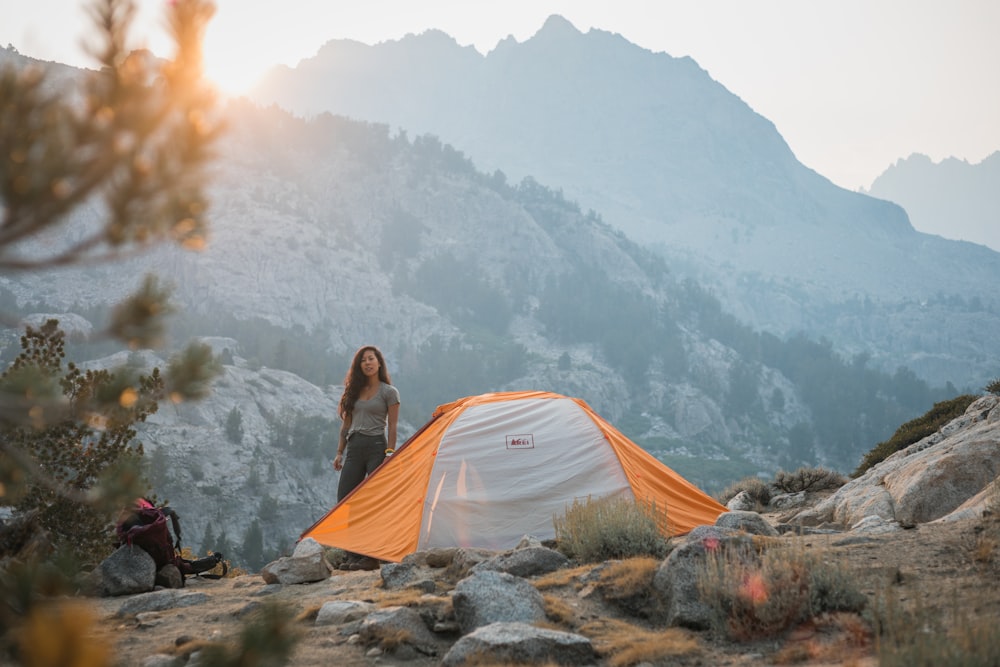
![Can I Bring Speaker In A Plane ? [Pro Traveler Guide 2025]](https://funkyfreshtravels.com/wp-content/uploads/2024/07/istockphoto-1156519636-612x612-1.jpg)

![Can I Bring Fishing Hooks on a Plane? [Travel Guide 2025]](https://funkyfreshtravels.com/wp-content/uploads/2024/07/istockphoto-1342441625-612x612-1.jpg)
![Best Inspiring Backpacking Quotes for Adventurers [2025]](https://funkyfreshtravels.com/wp-content/uploads/2024/05/Picture1-19.jpg)

